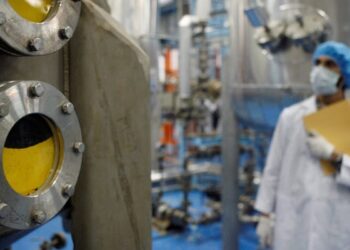
The European Space Agency (ESA) has launched an experiment aimed at exploring the possibility of cultivating lab-grown food in space, as reported by BBC News.
Onboard a SpaceX Falcon 9 rocket, researchers sent a bioreactor that will test the process of producing meals from fundamental cellular components in a microgravity environment.
This initiative aims to determine if growing food in orbit can drastically lower the exorbitant costs of feeding astronauts, which can soar up to £20,000 per day. Success in this area could pave the way for sustained human presence on the Moon or Mars in the future.
Dr. Aqeel Shamsul, the CEO of Bedford-based Frontier Space, a collaborator with Imperial College London on this mission, shared with BBC News, “Our vision is to establish factories in orbit and on the Moon. We need off-world manufacturing capabilities to support human life and work in space.”
The method employed, known as precision fermentation, is akin to brewing beer; however, it utilizes genetically engineered yeast to create vitamins and nutrients. Dr. Rodrigo Ledesma-Amaro, head of Imperial’s Bezos Centre, mentioned, “We can produce all the necessary components for food, including proteins, fats, carbohydrates, and fibers.”
The initial sample of genetically altered yeast was launched within a cube satellite on Phoenix, Europe’s first commercially viable returnable spacecraft. After a short orbit, it will return to Earth via splashdown off the coast of Portugal for evaluation.
Jakub Radzikowski, a culinary designer at Imperial College, is crafting recipes using natural fungi until regulations allow for the use of actual lab-grown ingredients. “We can replicate any type of cuisine in space, from French to Chinese or Indian,” he said.
Helen Sharman, the UK’s inaugural astronaut, praised the flavors of the sample dishes and highlighted the advantages of personalized nutrition for astronauts. “Lab-grown food could potentially enhance the dietary needs of astronauts,” she noted, referring to the biochemical changes that occur during missions affecting hormones, iron levels, and calcium.
She also remarked, “Astronauts often experience weight loss, so they may be more inclined to enjoy something that’s prepared from scratch.”



